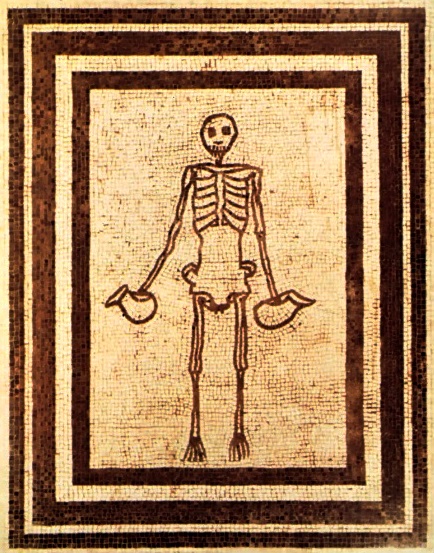Around lunchtime, in the year 79 of the Christian Era, on the coast of what is now modern-day Italy, a once-dormant volcano rumbled. Ash rained down on the first day as residents of the nearby city of Pompeii gathered their belongings and debated whether to leave or stay. A day later, Mount Vesuvius erupted in spectacular fashion. Filling the air with searing debris and gases, the eruption blotted out the sun and trapped the city, along with its lingering inhabitants, beneath twenty-feet of smoldering rubble.
The city lay buried for centuries until searchers began digging. Soon sizeable walls, expansive gates, colossal public buildings, and massive statuary were discovered, seemingly frozen in time and largely intact. Meticulous excavation of the 163-acre site also revealed tragic images of people, encased in cocoons of ash and pumice—some embracing, some in poses of abject terror, some clutching pottery, keepsakes, and other intimate possessions.
A few residents of Pompeii had fled their fate. Most had stayed—taking time to pack—a delay which sealed their doom.
Over time, archaeologists have relished the historic wealth of Pompeii. But they are not particularly impressed by the lavish public buildings or the statuary or even the mosaics and frescos adorning the floors and walls of wealthy residences. What most impresses those studying the soul of Pompeii are the number of well-preserved private homes and the shadows of ordinary people which offer glimpses into the city’s everyday life.
When we write, there is a tendency to trumpet the grandiose—focusing almost exclusively on our larger-than-life characters who are immersed, with burning passion, in the pursuit of magnificent goals. Often, we forget to draw attention to more ordinary characters who, with equal passion, quietly pursue less lavish, but nevertheless still noble dreams.
As we edit our craft, it will be best not to forget these little characters. Rather than asking after the motives of our most outlandish and heroic lead characters, it might be better to question other, more earthy personalities.
Take the example of Pompeii. Which seems more interesting? And which would more likely appeal to readers? A tale of happenings in the city’s huge town square or gigantic forum? Or smaller stories of the final hours of families, caught in the grip of an unthinkable disaster, taking precious moments to collect loved ones and sentimental treasures, and measuring their chances before fleeing?


Love this! I’ve been to Pompeii, and it’s the small personal touches that twisted at my heart, just like you say.
Thanks for your comment. Great to have my notion reinforced by someone who’s actually been to Pompeii!